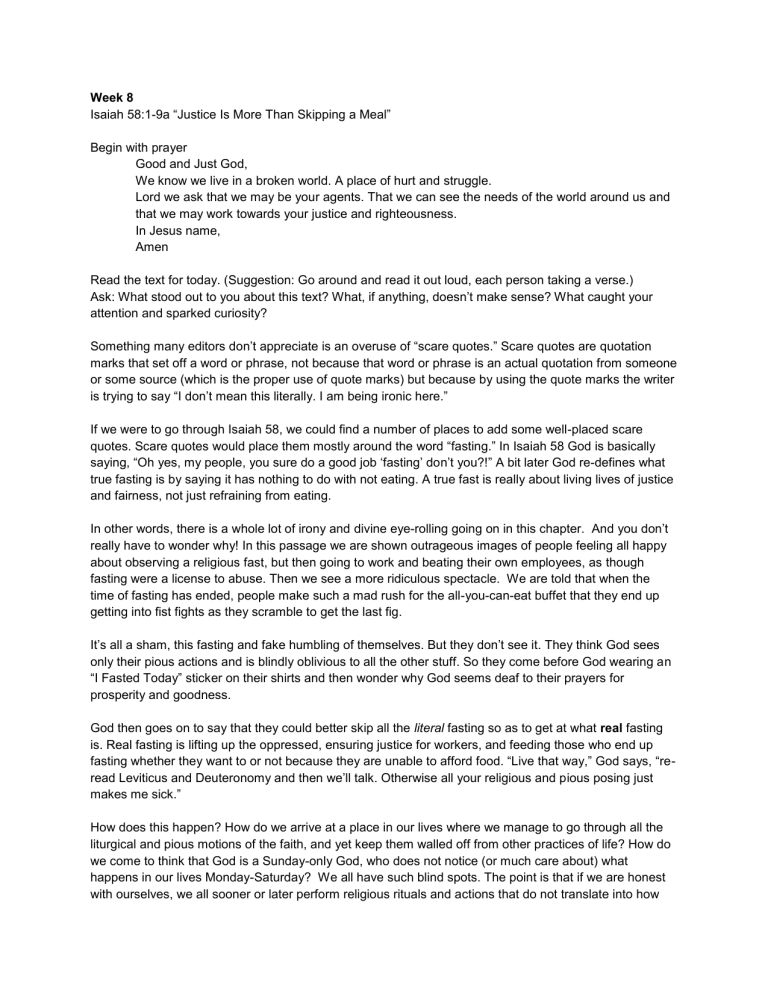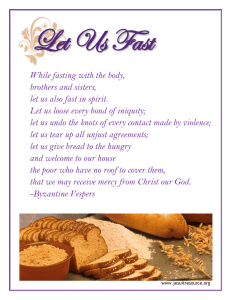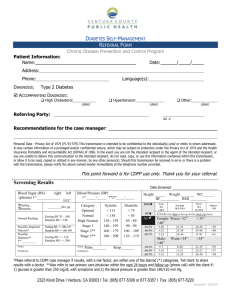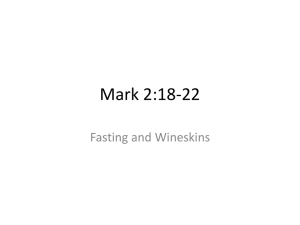Week 8 9a “Justice Is More Than Skipping a Meal” Isaiah 58:1-

Week 8
Isaiah 58:19a “Justice Is More Than Skipping a Meal”
Begin with prayer
Good and Just God,
We know we live in a broken world. A place of hurt and struggle.
Lord we ask that we may be your agents. That we can see the needs of the world around us and that we may work towards your justice and righteousness.
In Jesus name,
Amen
Read the text for today. (Suggestion: Go around and read it out loud, each person taking a verse.)
Ask: What stood out to you about this text? What, if anything, doesn’t make sense? What caught your attention and sparked curiosity?
Something many editors don’t appreciate is an overuse of “scare quotes.” Scare quotes are quotation marks that set off a word or phrase, not because that word or phrase is an actual quotation from someone or some source (which is the proper use of quote marks) but because by using the quote marks the writer is trying to say “I don’t mean this literally. I am being ironic here.”
If we were to go through Isaiah 58, we could find a number of places to add some well-placed scare quotes. Scare quotes would place them mostly around the word “fasting.” In Isaiah 58 God is basically saying, “Oh yes, my people, you sure do a good job ‘fasting’ don’t you?!” A bit later God re-defines what true fasting is by saying it has nothing to do with not eating. A true fast is really about living lives of justice and fairness, not just refraining from eating.
In other words, there is a whole lot of irony and divine eyerolling going on in this chapter. And you don’t really have to wonder why! In this passage we are shown outrageous images of people feeling all happy about observing a religious fast, but then going to work and beating their own employees, as though fasting were a license to abuse. Then we see a more ridiculous spectacle. We are told that when the time of fasting has ended, people make such a mad rush for the all-you-can-eat buffet that they end up getting into fist fights as they scramble to get the last fig.
It’s all a sham, this fasting and fake humbling of themselves. But they don’t see it. They think God sees only their pious actions and is blindly oblivious to all the other stuff. So they come before God wearing an
“I Fasted Today” sticker on their shirts and then wonder why God seems deaf to their prayers for prosperity and goodness.
God then goes on to say that they could better skip all the literal fasting so as to get at what real fasting is. Real fasting is lifting up the oppressed, ensuring justice for workers, and feeding those who end up fasting whether they want to or not because they are unable to afford food. “Live that way,” God says, “reread Leviticus and Deuteronomy and then we’ll talk. Otherwise all your religious and pious posing just makes me sick.”
How does this happen? How do we arrive at a place in our lives where we manage to go through all the liturgical and pious motions of the faith, and yet keep them walled off from other practices of life? How do we come to think that God is a Sunday-only God, who does not notice (or much care about) what happens in our lives Monday-Saturday? We all have such blind spots. The point is that if we are honest with ourselves, we all sooner or later perform religious rituals and actions that do not translate into how
we live outside of worship or outside of Christian circles. It is fully possible to hold worship services in the center of unjust societies and never let the one challenge the other.
God invites us to submit ourselves —in true humility and in true repentance—to the Word of God. There is only one measuring stick against which to size ourselves up. It’s not politics-as-usual, the viewpoints of the right or the left, or any commentator or talking head on cable news networks. The Word of God alone is our guide. If we hope to have (as Isaiah 58 ultimately promises) the glory of God surround and guard our lives, we must let the grace of God nurture the humility we need to acknowledge how often we do things wrongly. We must strive toward the days when the things we do, say, sing, and affirm in worship on
Sundays (or in chapel), will translate into how we live the rest of the time.
Jesus says in Matthew 5 that he did not come to abolish the Law but to fulfill it, and to call all of his disciples to an even more radical devotion to living in ways that truly glorify God. It is not misguided works-righteousness that makes us want to do this. We are compelled by the sheer gratitude we feel for the grace of God we receive through Christ Jesus our Lord. He is the living and embodied fulfillment of all
God’s designs for this creation.
Let’s talk about it:
● What do you identify as hypocrisy in your own life?
● What does fasting mean to you?
● What do you fast from?
● Does fasting make sense to you? Confused by it?
● What religious rituals and actions does our community practice that do not translate into how you live outside of worship? That is, does worship in the chapel affect life in the dorm?
● In this text, what did Israel do to show their religious zeal? What does Isaiah say that calls their sincerity into question?
● Read James 1:27. How does this provide a similar picture to Isaiah 58:6-14?
● Jesus speaks of people who call him “Lord” and do many works in his name, yet whose disobedience demonstrates their lack of relationship with him (Matthew 7:21-23). What does it look like for you to seek God daily? How does fighting and oppression keep you from seeking
God daily?
● Sometimes we all just mindlessly go along with larger socio-economic trends and practices in society, failing to even try to connect the dots to our faith and to what God asks of us. When do you notice this in your life? It’s easier to just go with the trends rather than do the hard work of change. What needs to change in your life? At Calvin? In your dorm or apartment? At your
Church?


